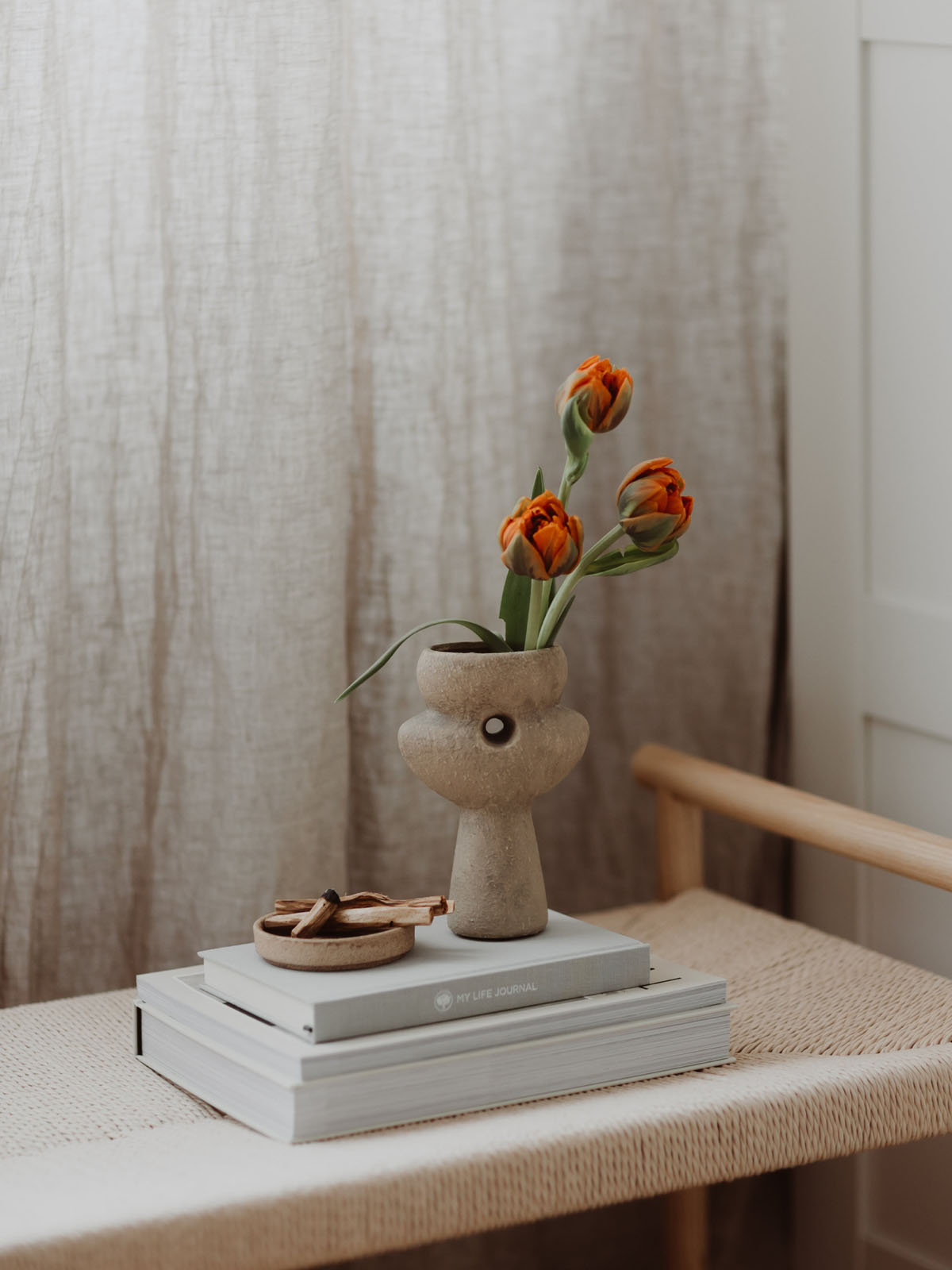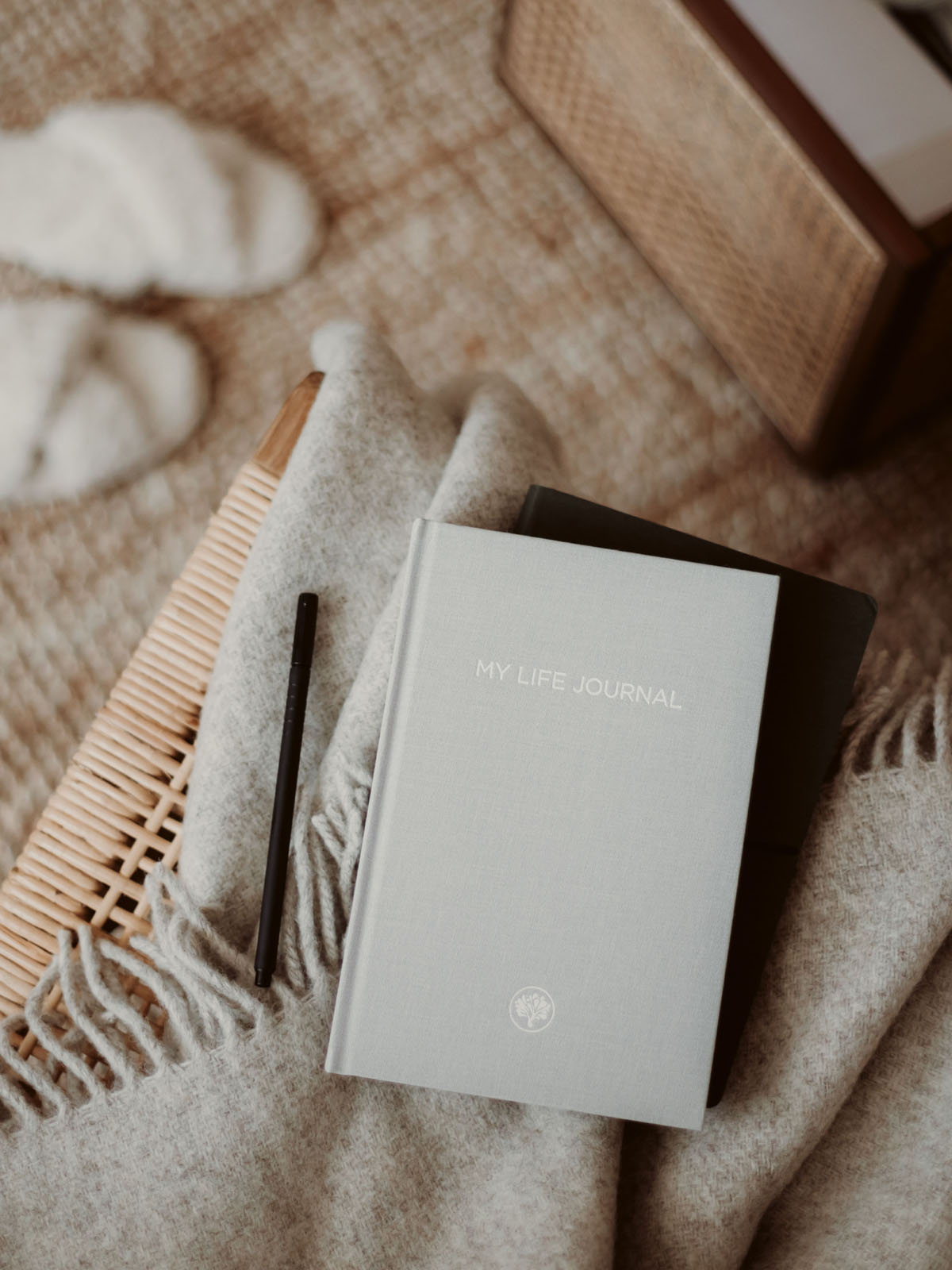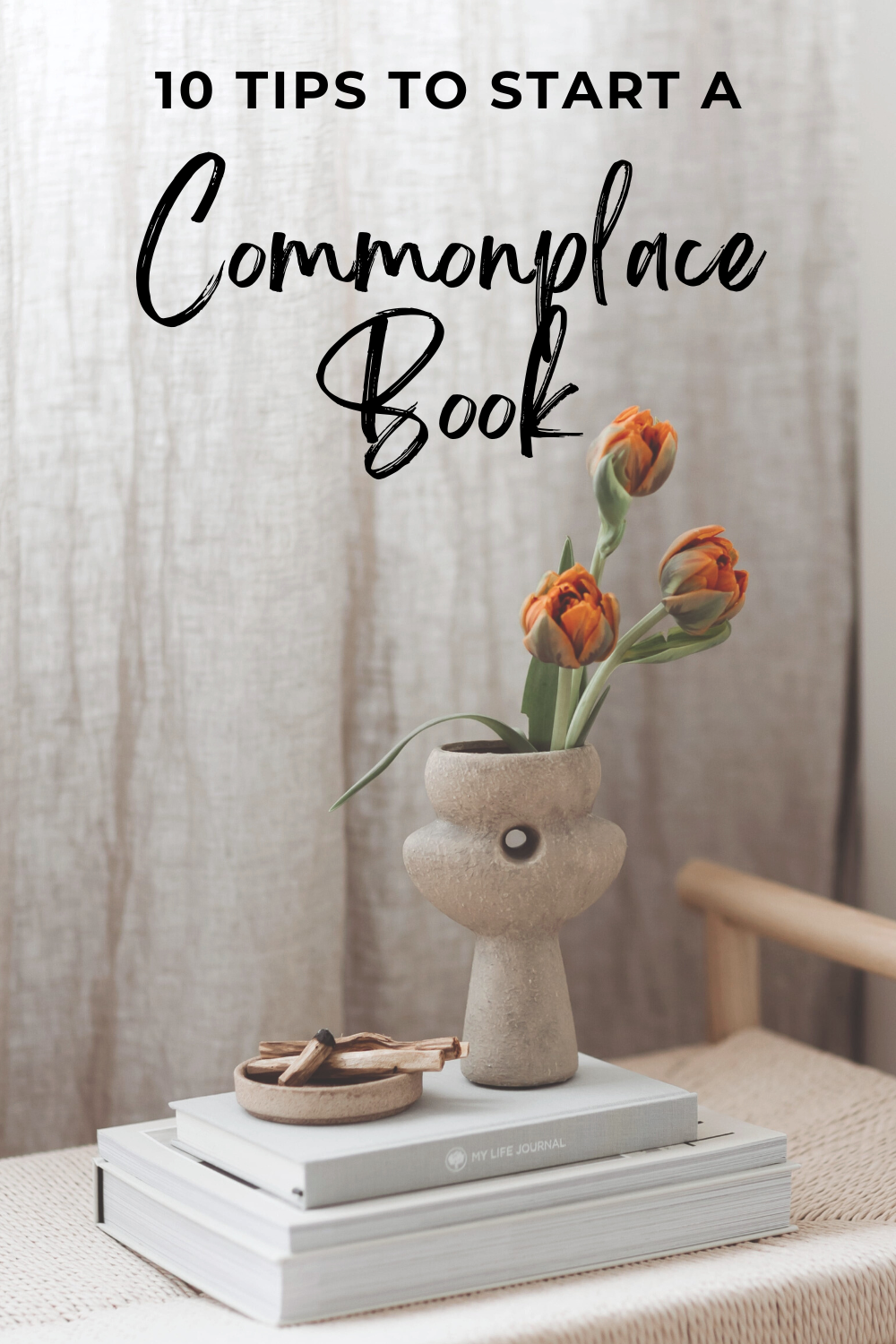10 Tips To Start A Commonplace Book (And Why You Should)
6 min readA commonplace book boosts your creativity and lets you record the tidbits of your everyday life. Here’s how to start one – and why you should. We’re flooded with a constant stream of content these days – from social media and TV to everything we read online. A commonplace book is the ideal strainer that lets you sift through this flood of information to capture what really inspires you. Whether it’s a quote from a romantic comedy or a passage from a classic novel, a commonplace book is a place to jot down everything you want to remember. Writing down anecdotes and quotes in a commonplace book is a centuries-old tradition. And it was a beloved practice of writers like John Milton and Virginia Woolf. But a commonplace book is especially relevant in this modern age – when you’re exposed to masses of content at dizzying speeds. Writing down quotes, lyrics, passages and proverbs that catch your attention sharpens your eye and makes you a more active observer. A commonplace book also boosts your creativity, fuels your inspiration and lets you record snippets for future reference. Commonplace book meaning So what exactly is a commonplace book? A commonplace book is a type of diary used to record your favorite passages from books, anecdotes, proverbs, lists, recipes, song lyrics, quotes and phrases. It’s a place to jot down anything you find inspiring, thoughtful or interesting. It’s essentially a way to store anything you don’t want to forget. Though “commonplace booking” isn’t exactly new. Everyone from Marcus Aurelius to Mark Twain used a commonplace book to gather notes. Today dozens of creatives swear by their commonplace books to fuel their creativity and find inspiration for their next project. And commonplace booking is definitely making a comeback. What’s the difference between a journal and a commonplace book? A journal contains your own writing, thoughts and ideas. A commonplace book is a place to gather quotes and thoughts written by other people. Commonplace book ideas Whether it’s song lyrics or quotes from Breaking Bad, your commonplace book is highly personal. It reflects your own unique interests and everyday thoughts. What can you write in your commonplace book? Here are some ideas: passages from books, novels and poetry recipes quotes anecdotes proverbs snippets of conversation parts of dialogue from films and TV series lists (of movies to watch, books to read, art galleries to visit) song lyrics snippets from news stories extracts from magazine articles notes from podcasts, YouTube videos and TED Talks How do you start a commonplace book? If you’ve never kept a journal before, then starting a commonplace book can be intimidating. And commonplace booking might feel too time-consuming when your everyday life feels like a constant rush. But it’s an ideal way to slow down and take some time for yourself. It also helps you engage more with the content you’re consuming. And it’s an inspiring practice that will ultimately make you more thoughtful, observant and creative. It’s well worth your time. Here are some tips to start a commonplace book: 1. Start small and keep your expectations realistic. Don’t expect to fill up entire pages when you begin. It takes awhile to hone your ear and capture the ideas worth noting down. 2. Keep your commonplace book on your bedside table if you’re more likely to read at night and jot down quotes before you sleep. Or keep a notebook in your purse if you want to write during your commute. 3. Make commonplace booking a part of your daily routine. Don’t wait for inspiration to strike. Instead, take a few minutes with your morning coffee or just before bed to do some writing. 4. Take screenshots of quotes when you’re reading content on your phone. Then set aside a few minutes a day to write out your favorite quotes in your book. 5. Get creative. A commonplace book doesn’t have to be all about quotes. It’s about your specific interests and passions. If you watch a lot of gardening videos on YouTube, for example, then use your book to record ideas and insightful snippets from gardening vlogs. You’re more likely to keep up the habit when you look forward to it. 6. Make your commonplace booking a pleasure. Take your book to the park and write in the grass on the weekend. Or light some candles at night with your favorite tea as you write. 7. Make your commonplace book personal and messy. Don’t worry about your handwriting or the physical appearance of your notebook pages. Your book is your private space to let your thoughts roam free. 8. Don’t abandon your book if you skip a few weeks. Get back into the habit and don’t beat yourself up over any missed opportunities. 9. Go back regularly and read over your past entries. This will prove the value of a commonplace book to you – and inspire you to keep going. 10. Get some accountability. Find a writing buddy or a like-minded friend to share your book with. Read some of your favorite quotes or insights the next time you’re meeting for coffee. The best notebook for a commonplace book The best notebook is the one you’re most likely to use. Get a small and lightweight notebook if you plan to write on-the-go or while you’re commuting. Invest in a thick and luxurious notebook if you plan to write in the evenings in bed. Or try out a few different notebooks to find the one you’re most comfortable with. If you’re artistic, try an unlined notebook that lets you combine quotes with sketches and illustrations. A commonplace book template What’s the best way to organize your commonplace book? The traditional way is to divide your notebook into sections – one section for each different topic that you’re going to cover. If you’re studying gardening and love to read thrillers, for example, then divide your notebook into “gardening ideas” and “thriller quotes.” Add and edit your sections over time. And create an index on the front page for easy reference. But if you’re a wide reader who consumes a lot of content, your commonplace book will likely be a haphazard mix of disparate ideas thrown together. And that’s the beauty of it. By creating a seemingly random collage of quotes and snippets, you’re making fresh observations and drawing new connections. Conclusion A commonplace book will enrich your life, give you a record of your everyday thoughts and make you a more creative and intelligent reader. With the steady stream of information in our modern age, a commonplace book is more important than ever to help you sift through the flood. It helps you make sense of the world and reveals what you find most valuable. Jonathan Swift said it’s something a poet “cannot subsist without for this proverbial reason: that great wits have short memories.” And though a blank page can be intimidating, starting your first commonplace book only takes a few dedicated minutes a day. The benefits will amaze you. I would love to hear from you! What are your favorite things to put into a commonplace book? MORE RESOURCES: Journaling for Mental Health (And 30 Powerful Prompts) 100 Best Journaling Ideas (For Anxiety, Clarity And More) 14 Life-Changing Journaling Techniques 18 Incredible Journaling Benefits (And How To Start) 17 Journaling Tips For Beginners (And How To Start) Pin it:
The post 10 Tips To Start A Commonplace Book (And Why You Should) appeared first on Vanilla Papers.
A commonplace book boosts your creativity and lets you record the tidbits of your everyday life. Here’s how to start one – and why you should.
We’re flooded with a constant stream of content these days – from social media and TV to everything we read online.
A commonplace book is the ideal strainer that lets you sift through this flood of information to capture what really inspires you.
Whether it’s a quote from a romantic comedy or a passage from a classic novel, a commonplace book is a place to jot down everything you want to remember.
Writing down anecdotes and quotes in a commonplace book is a centuries-old tradition. And it was a beloved practice of writers like John Milton and Virginia Woolf.
But a commonplace book is especially relevant in this modern age – when you’re exposed to masses of content at dizzying speeds.
Writing down quotes, lyrics, passages and proverbs that catch your attention sharpens your eye and makes you a more active observer.
A commonplace book also boosts your creativity, fuels your inspiration and lets you record snippets for future reference.
Commonplace book meaning


So what exactly is a commonplace book?
A commonplace book is a type of diary used to record your favorite passages from books, anecdotes, proverbs, lists, recipes, song lyrics, quotes and phrases.
It’s a place to jot down anything you find inspiring, thoughtful or interesting.
It’s essentially a way to store anything you don’t want to forget.
Though “commonplace booking” isn’t exactly new. Everyone from Marcus Aurelius to Mark Twain used a commonplace book to gather notes.
Today dozens of creatives swear by their commonplace books to fuel their creativity and find inspiration for their next project.
And commonplace booking is definitely making a comeback.
What’s the difference between a journal and a commonplace book?
A journal contains your own writing, thoughts and ideas. A commonplace book is a place to gather quotes and thoughts written by other people.
Commonplace book ideas


Whether it’s song lyrics or quotes from Breaking Bad, your commonplace book is highly personal.
It reflects your own unique interests and everyday thoughts.
What can you write in your commonplace book?
Here are some ideas:
- passages from books, novels and poetry
- recipes
- quotes
- anecdotes
- proverbs
- snippets of conversation
- parts of dialogue from films and TV series
- lists (of movies to watch, books to read, art galleries to visit)
- song lyrics
- snippets from news stories
- extracts from magazine articles
- notes from podcasts, YouTube videos and TED Talks
How do you start a commonplace book?


If you’ve never kept a journal before, then starting a commonplace book can be intimidating.
And commonplace booking might feel too time-consuming when your everyday life feels like a constant rush.
But it’s an ideal way to slow down and take some time for yourself. It also helps you engage more with the content you’re consuming.
And it’s an inspiring practice that will ultimately make you more thoughtful, observant and creative. It’s well worth your time.
Here are some tips to start a commonplace book:
- 1. Start small and keep your expectations realistic. Don’t expect to fill up entire pages when you begin. It takes awhile to hone your ear and capture the ideas worth noting down.
- 2. Keep your commonplace book on your bedside table if you’re more likely to read at night and jot down quotes before you sleep. Or keep a notebook in your purse if you want to write during your commute.
- 3. Make commonplace booking a part of your daily routine. Don’t wait for inspiration to strike. Instead, take a few minutes with your morning coffee or just before bed to do some writing.
- 4. Take screenshots of quotes when you’re reading content on your phone. Then set aside a few minutes a day to write out your favorite quotes in your book.
- 5. Get creative. A commonplace book doesn’t have to be all about quotes. It’s about your specific interests and passions. If you watch a lot of gardening videos on YouTube, for example, then use your book to record ideas and insightful snippets from gardening vlogs.


You’re more likely to keep up the habit when you look forward to it.
- 6. Make your commonplace booking a pleasure. Take your book to the park and write in the grass on the weekend. Or light some candles at night with your favorite tea as you write.
- 7. Make your commonplace book personal and messy. Don’t worry about your handwriting or the physical appearance of your notebook pages. Your book is your private space to let your thoughts roam free.
- 8. Don’t abandon your book if you skip a few weeks. Get back into the habit and don’t beat yourself up over any missed opportunities.
- 9. Go back regularly and read over your past entries. This will prove the value of a commonplace book to you – and inspire you to keep going.
- 10. Get some accountability. Find a writing buddy or a like-minded friend to share your book with. Read some of your favorite quotes or insights the next time you’re meeting for coffee.
The best notebook for a commonplace book
The best notebook is the one you’re most likely to use.
Get a small and lightweight notebook if you plan to write on-the-go or while you’re commuting.
Invest in a thick and luxurious notebook if you plan to write in the evenings in bed.
Or try out a few different notebooks to find the one you’re most comfortable with.
If you’re artistic, try an unlined notebook that lets you combine quotes with sketches and illustrations.
A commonplace book template


What’s the best way to organize your commonplace book?
The traditional way is to divide your notebook into sections – one section for each different topic that you’re going to cover.
If you’re studying gardening and love to read thrillers, for example, then divide your notebook into “gardening ideas” and “thriller quotes.”
Add and edit your sections over time. And create an index on the front page for easy reference.
But if you’re a wide reader who consumes a lot of content, your commonplace book will likely be a haphazard mix of disparate ideas thrown together.
And that’s the beauty of it.
By creating a seemingly random collage of quotes and snippets, you’re making fresh observations and drawing new connections.
Conclusion


A commonplace book will enrich your life, give you a record of your everyday thoughts and make you a more creative and intelligent reader.
With the steady stream of information in our modern age, a commonplace book is more important than ever to help you sift through the flood.
It helps you make sense of the world and reveals what you find most valuable.
Jonathan Swift said it’s something a poet “cannot subsist without for this proverbial reason: that great wits have short memories.”
And though a blank page can be intimidating, starting your first commonplace book only takes a few dedicated minutes a day.
The benefits will amaze you.
I would love to hear from you! What are your favorite things to put into a commonplace book?
MORE RESOURCES:
Journaling for Mental Health (And 30 Powerful Prompts)
100 Best Journaling Ideas (For Anxiety, Clarity And More)
14 Life-Changing Journaling Techniques
18 Incredible Journaling Benefits (And How To Start)
17 Journaling Tips For Beginners (And How To Start)
Pin it:


Discover more from Slow Travel News
Subscribe to get the latest posts sent to your email.



